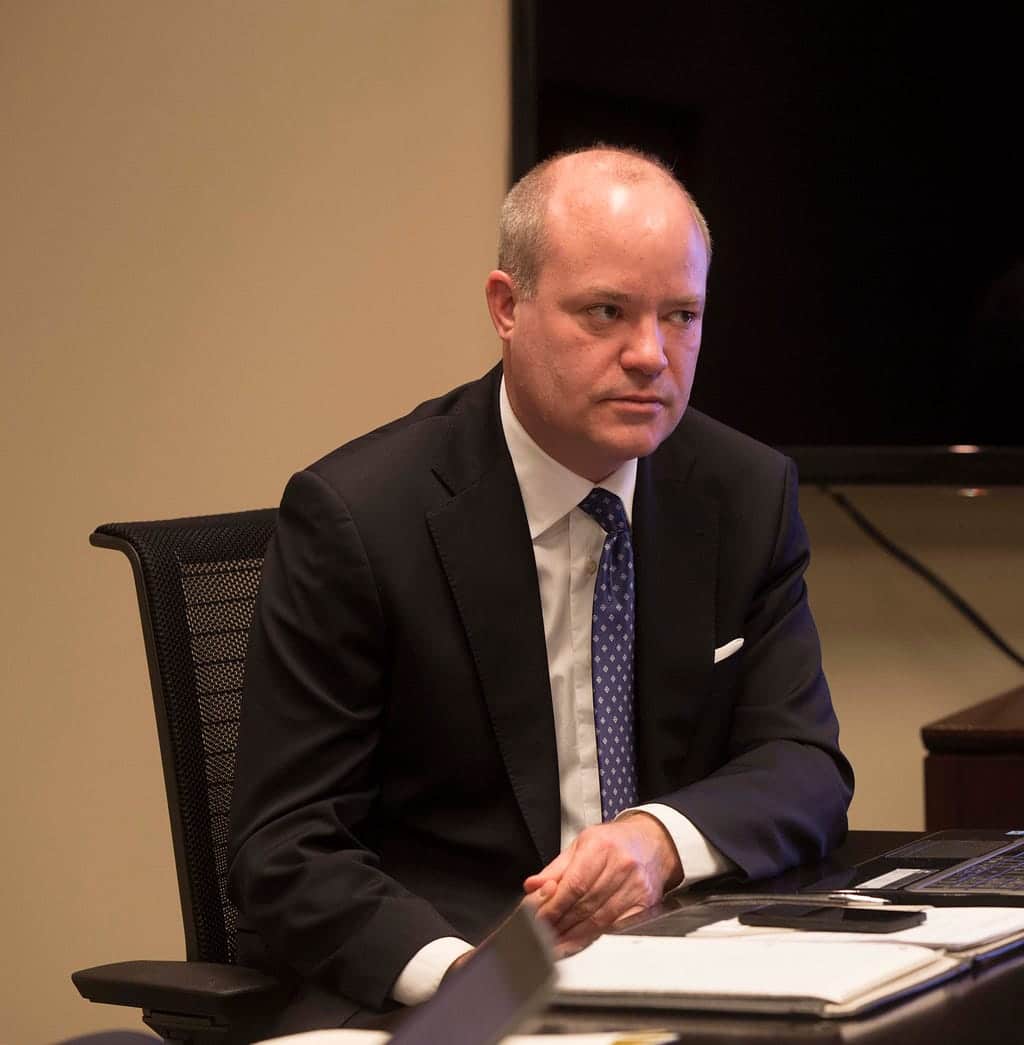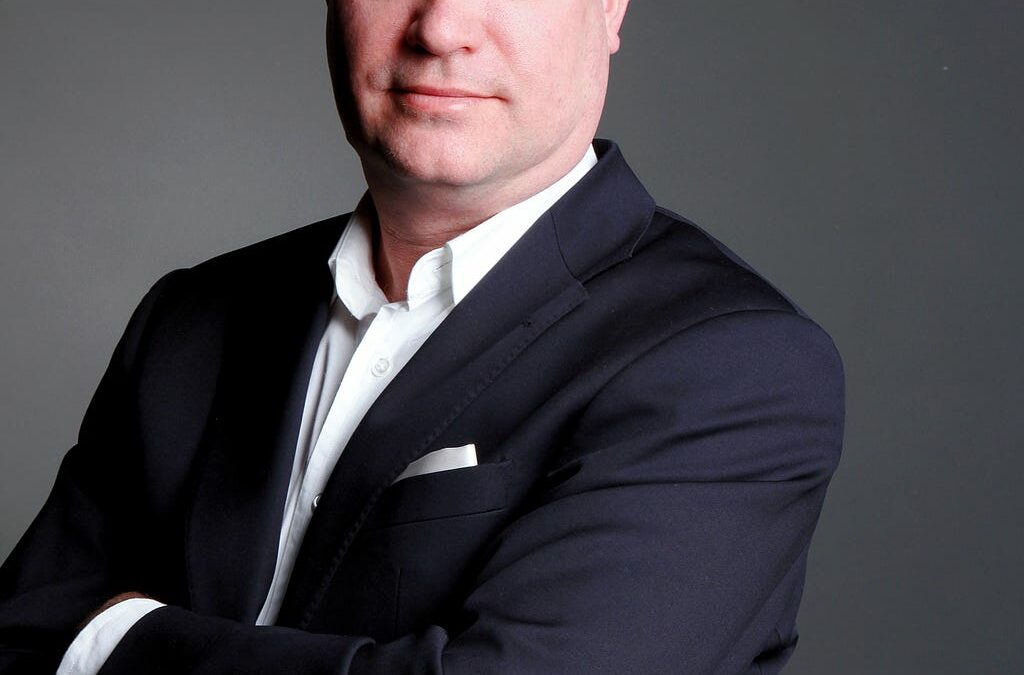An Interview With Vanessa Ogle

Teamwork — when a company functions like a team: less management is required, there is less rework, and employees are helping their colleagues succeed; leading to better results for the client.
Every company has a corporate culture. This culture can foster innovation and a fresh exchange of ideas or it can promote selfishness and backbiting which will damage the bottom line of any business. Sensitivity to the culture of a business goes beyond mere awareness; it’s about actively adapting and responding to create the culture that you want to represent your brand. This is crucial for building successful, respectful, and inclusive working environments and for creating products and services that resonate with a diverse customer base. As part of this series, we had the pleasure of interviewing Steve Williams.
Steve Williams CExP™, CMAA is a Partner at Incentica Business Plans in Calgary. He is a Certified Exit Planner and Mergers & Acquisitions Advisor with 30 years of senior management and executive experience. Steve has written over 130 strategic plans and succession/exit plans for some of the biggest best, including Fortune 500 companies. Steve is a Business School grad and Harvard educated.
Thank you so much for joining us in this interview series. Before we dive into our discussion about Why Corporate Culture Matters in Business, our readers would love to “get to know you” a bit better. Can you share with us the backstory about what brought you to your specific career path?
I have always loved seeing how businesses work and what makes them tick. I couldn’t wait to get out of business school and get in the game. I have been lucky to work for a number of good companies that allowed me to pursue different functions that are critical to business success including, strategic planning, mergers and acquisitions, and many operational hats too, such as sales, marketing, product management to name a few. This put me on a path to help companies achieve their goals. Eventually, after 25 years of plying my trade, I reached the senior executive level of a publicly traded company. At that point I felt confident I could go out on my own and help 20 to 30 companies a year achieve their goals; it has been 10 years since and I am glad I made that choice.
Can you share the most interesting story that happened to you since you started your career?
Oh boy, I have seen so many interesting things. Why don’t we make it a Culture story.
I worked for a young upstart company that was starting to hit an inflection point — it was competing against multi-billion-dollar companies globally and winning market share. The company’s culture had a lot to do with that — it was a respectful culture but one that was collectively focused on how to better serve our clients and get ahead of our competition. A group of us were out celebrating a big win against the 800-pound Gorilla in the industry when one of senior salesperson spotted at the bar, of all people, the 800-pound gorilla’s sales rep, our nemesis (at least that is the way we felt). Our salesperson went to say hello, maybe our nemesis thought he was there to gloat. Anyway, the competitor took exception with us even being on the same bar. To see our competitor this upset after we had just beat him in fair competitive environment validated to us that we had truly arrived.
You are a successful individual. Which three character traits do you think were most instrumental to your success? Can you please share a story or example for each?
Tenacious — I am a firm believer where there is a will there is a way. I am reminded, every heavy weight boxing champ got knocked down, only the champions got back up.
Curious — I am always looking to learn what I need to do to improve. There is always someone that knows more about an area than I do. I love going to industry events, speaking engagements and reading new material to see what is new and what we have figured out how to do better.
Straight Shooter — this can be a con depending on the company and instance but I have found it to be hugely beneficial to helping my clients with their major challenges. Expressing concerns with how a company is conducting themselves is not always an easy message to deliver but I find, properly set up, at the right time, and delivered with a clear, respectful interest in improving a situation — it typically is well received.
Ok, thank you for that. Let’s now jump to the primary focus of our interview. How do you define corporate culture in the context of your business, and why is it important for your company’s success?
To me, it is more about seeing how critical good corporate culture can be to a client company’s success and eventually their ability to have a buyer view their company as a good organization worth top dollar.
A great company needs a good culture. Without a good culture all of the corporate functions and any strategic planning will not have a solid foundation for success. I have worked with companies that have good cultures, some with room to grow in the culture area. Ultimately, helping these corporations to create or entrench good culture is paramount for the strategies we build together to have the desired impact.
Can you share an experience where corporate culture impacted a business decision or client relationship (positive or negative)?
Sure, let’s go with an example of how bad corporate culture can ultimately lead to a company’s demise. This company could not execute — the President didn’t do what he said he would, the project management office failed to deliver projects on time, executives took on well directed initiatives and never got them over the goal line. Some would say their failure was lack of processes, systems, KPIs, etcetera; but that was not the root cause. The company’s culture perpetuated a lack of accountability — not following through, and they eventually went out of business despite having very experienced, knowledgeable people in a high margin industry.
What strategies do you employ to monitor and enhance corporate culture within your team or organization?
At clients I want to see what they have accomplished. There are tell tale signs that there is a healthy culture. Here are some metrics I look at. 1) Have historical Strategic Plans resulted in the desired change and accomplishments 2) What are managers and employees’ objectives, who sets these objectives, how are they measured and what percentage are achieved 3) what is the retention rate — if managers and employees want to stay at an organization, that is a good indicator the company is well run, especially when the company has good marks in 1) and 2).
How do you handle situations where the executives may not be aware of corporate culture in mid-management?
This can be pretty straight forward. The company needs a feedback loop that both sides trust. Third parties might be the best to gather anonymous, honest, unfettered feedback from middle management or, in some cases, a satisfaction survey will get good results. This feedback needs to be collated and prioritized and executives have to do something with the results. Doing nothing or paying lip service can make a less than desirable corporate culture even worse.

Based on your experience and research, can you please share “5 Reasons How Corporate Culture Helps the Bottom Line of a Business?”
1 . Teamwork — when a company functions like a team: less management is required, there is less rework, and employees are helping their colleagues succeed; leading to better results for the client.
2 . Momentum — the marketplace and internal environments can feel when a company has momentum, this is attractive to clients as they want to be with successful suppliers, this is good for their business too.
3 . Corporate knowledge — when a company is able to retain staff because they have a good culture, knowledge stays with the business. When knowledge stays in the business at key value-add positions the company can focus on going to the next level rather than trying to fill resource holes to stay at the same level.
4 . Results driven — when a company’s employees and managers are focused on getting results, as measured by achieving individual and corporate objectives, then the collective company gets results that make clients satisfied. For example: when products and services get delivered on time, and quality is assured — clients are happy and referenceable.
5 . Client oriented — the client isn’t always right but their needs and wants are. When a company has a culture that is always focused on the customer and is always looking for representative feedback from key clients then the organization has put itself in a position to deliver differentiated, relevant product and service, this leads to higher gross and profit margins.
In what ways has focusing on Corporate Culture given your business a competitive edge?
By focusing on corporate culture as a pillar of any good company then clients are much more likely to build consensus on what the next strategic move is, and be far more likely to execute of on the strategic action plan.
You are a person of great influence. If you could start a movement that would bring the most amount of good to the most amount of people, what would that be? You never know what your idea can trigger. 🙂
In my humble opinion, continuing to help entrepreneurs is one of the best ways to give back. They are employers and social contributors to the communities they operate in.
How can our readers further follow you online?
Check out my blog for other business improvement musings. Incentica.ca
Thank you for the time you spent sharing these fantastic insights. We wish you only continued success in your great work!
About The Interviewer: Vanessa Ogle is an entrepreneur, inventor, writer, and singer/songwriter. She is best known as the founder of Enseo which she and her team grew into one of the largest out-of-home media and connected networks in the world, serving more than 100,000,000 people annually. Vanessa’s talent in building world-class leadership teams focused on diversity, a culture of service, and innovation through inclusion resulted in amazing partnerships and customer relationships. She collaborated with the world’s leading technology and content companies such as Netflix, Amazon, HBO, and Dish Networks to bring innovative solutions to the hospitality industry. Enseo has also held an exclusive contract to provide movies to the entire U.S. armed forces for almost 15 years. Vanessa and her team’s relentless innovation resulted in120+ U.S. Patents. Her favorite product is the MadeSafe solution for hotel workers as well as students and children in their K-12 classrooms. Accolades include: #15 on FAST 100, 50 Fastest Growing Women-Owned 2018–2020, Entrepreneur 360 Best Companies 2018–2020, not to mention the Inc. 500 and then another six times on the Inc. 5000. Vanessa was personally honored with Inc. 100 Female Founder’s Award, Ernst and Young’s Entrepreneur of the Year Award, and Enterprising Women of the Year. Vanessa now spends her time enjoying her children, sharing stories to inspire and give hope through articles and speaking engagements. entrepreneurs-to-be with her articles including her LinkedIN newsletter Unplugged. In her spare time she writes music with her husband Paul as the band HigherHill, teaches surfing clinics, and trains dogs.
Please connect with Vanessa here on linkedin and subscribe to her newsletter Unplugged as well as follow her on Substack.
Steve Williams Of Incentica Business Plans On Why Corporate Culture Matters in Business was originally published in Authority Magazine on Medium, where people are continuing the conversation by highlighting and responding to this story.

